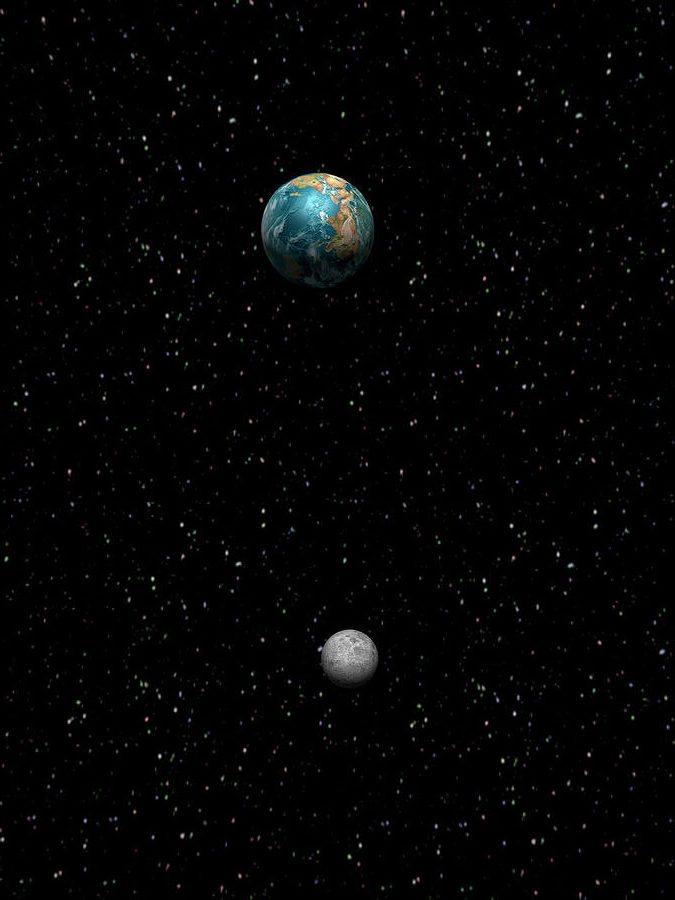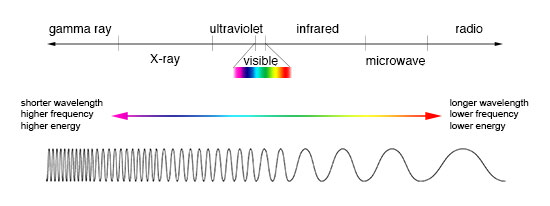If you can’t explain it simply, you don’t understand it well enough.
~ Albert Einstein* (paraphrase)
One of the explicit goals of my Sweetwater internship was for me to “find my voice”; to learn to express how my faith in Christ undergirds my work in science and to communicate in a manner that is accessible to people from various walks of life, whether that be fellow scientists, fellow Christians, adults, children, Westerners, non-Westerners, etc. Being a young scientist and a professing Christian means I have opportunity to bridge the gap between the two worlds of science and faith, which are, unfortunately and unreasonably, often discussed in dichotomous, contrasting terms. In my experience, most people, and I would venture most Westerners, think of science as the producer and final authority of “truth” while faith, or religion, is viewed as an escape from the horrors of reality. I strongly disagree with this distinction because my faith in Christ is what spurred me to become a scientist in the first place and my belief in the Creator and Sustainer God is what gives meaning to the work that I do as a scientist. However, simply believing and living out that truth for myself is not enough. I also need to be able to help others to see the interconnectedness of God and His world. Thankfully, I am not the first person attempting to explain how we see God in nature. To inform how I should approach the topic of God in science I can rely on others for guidance who are much wiser than myself. By leaning on their wisdom, explanations of how faith and science are integrated in my own work can be more effective and better allow me to “explain it simply”.
To this end, I recently read A Meaningful World: How the Arts and Sciences Reveal the Genius of Nature, written by Benjamin Wiker and Jonathan Witt[1]. The authors wrote this book in response to the fast-spreading “poison” in our world that claims the universe is meaningless…and ultimately our lives (p. 13). Many scientists support the notion that life is nothing more than a happy accident, a “farcical outcome of a chain of accidents reaching back to the first three minutes” in the words of physicist Steven Weinberg (p. 23). In contrast, Wiker and Witt argue that, rather than the universe shouting its meaning-less-ness, the universe is actually meaning-full. For me, this book was intensely thought-provoking and, quite frankly, life changing. It challenged me to think in new ways and I appreciated that the authors provided specific statistical, mathematical, and scientific evidence to support their claims. After finishing A Meaningful World, I have a deeper confidence that Christians should not be pushed back on our heels in defense as science attempts to deny evidence of God in the natural world under the guise of “truth”. On the contrary, science is in our favor! The more we learn about the world the more we find evidence of an intelligent designer, not less. Given the lasting impression this book has left on me, I couldn’t keep it to myself. Therefore, the purpose of this blog post is to share why A Meaningful World was so influential for me. Sadly, I lack the space to share every passage that impacted me (for that, I would have to quote the entire book!), so I will focus on one of my favorite themes addressed by the authors: the atmosphere design problem.
The Atmosphere Design Problem
Normal daily activities require us to see. Many scientific discoveries would not have occurred if we did not have the gift of eyesight. Yet our ability to see is taken for granted. There is an incredible amount of design and fine tuning in the universe necessary for human vision, not even taking into consideration the immense complexity of our eyes and their relationship to our brain that allows us to make sense of visual signals. For our eyes to even be useful, we first need access to light.
But what is light?
Light is a form of energy characterized by the length and intensity of its electromagnetic wavelength. There is a vast range of electromagnetic energy waves, from low-energy, long-wavelength radio waves to high-energy, short-wavelength gamma rays. The distribution of these energy waves has been mapped in the electromagnetic spectrum. In the middle of that spectrum is a small range of energetic wavelengths that produce what we call “visible light”. Therefore, when I say above that we need access to light, I am referring to this “visible light”: ROY G BIV.
Why is the necessity for visible light important?
Visible light makes up a very small percentage of the electromagnetic spectrum. According to biochemist Michael Denton, it is only “one part in 1025 of the entire electromagnetic spectrum” (p. 163). This fraction is “equivalent to one playing card in a stack of cards stretching halfway across the cosmos, or one second in 100 quadrillion (100,000,000,000,000,000) years” (p. 163). And yet, only visible light can produce the conditions necessary for seeing. It is not only good at producing these conditions, but in fact is optimal. Wiker and Witt state:
…visible light is optimal for visual perception according to the parameters of the chemical bonds that make complex biological life—with complex organs of sensation—possible. In regard to the eye, visible light is energetic enough to bring about the needed chemical reactions in the eye and of small enough wavelength to allow for sufficient visual discrimination. As we trail into the more ultraviolet light, the higher frequency, while allowing greater discrimination, causes more and more biological damage; as we trail into the infrared, the lower frequency makes for poorer discrimination and less energy, which, even though less dangerous, makes chemical reactions too weak (pp. 163-164).
Even though visible light only makes up a miniscule portion of the spectrum of energetic wavelengths found in our universe, it is the only range of energy capable of allowing us to see and see clearly. It is the “baby bear” wavelength range: not too hot, not too cold, but just right.
How does the fact that our world provides us with this light reveal the need for a designing genius?
Our atmosphere is the first line of defense against the damaging high-energy waves in our universe. Therefore, the atmosphere must be dense enough to block out the dangerous waves while allowing the useful energies to pass through.
If our planet were covered with a very dense atmosphere, things here on Earth would be quite dark, a world of grays and blacks at best. At the same time, we need enough of an atmosphere not only to provide energy for living things, but to protect us from harmful light. …Without an atmosphere, we would be prey to the whole [electromagnetic] spectrum, and the higher energy gamma, x-ray and ultraviolet wavelengths are so energetic that they destroy the chemical bonds that make biological complexity possible. Life on a planet needs protection, and such protection must come, for the most part, from the atmosphere. Yet too much protection would mean blocking out visible light, that small band of very useful electromagnetic radiation nestled between ultraviolet and infrared. Blocking out visible light removes one of the obvious conditions for seeing (p. 162).
For vision, we need access to visible light. Visible light only reaches us after first passing through our atmosphere. It just so happens that our atmosphere is optimally designed to allow visible light (“one part in 1025 of the entire electromagnetic spectrum”) through, while blocking out the higher-energy waves that would destroy life altogether. Wiker and Witt argue, then, that the ability to create a solution to such a “daunting design problem” (p. 162) is the mark of a true genius.
What’s even more incredible, and further points to the need for an intelligent designer, is that the solution to the atmosphere design problem does not only solve its own problem but also serves as a solution to several other issues within Earth’s system.
The ozone (O3) and oxygen (O2) in our atmosphere—which exist largely because of Earth’s plant life and which make possible the existence of higher, more complex animal life—also serve to block out the most lethal electromagnetic gamma rays, x-rays and ultraviolet rays; and because of their peculiar chemical properties, quite suddenly open up a “window” allowing in the very thin spectrum of visible and near visible light. Similarly, the carbon dioxide and water vapor, present in the atmosphere in their respective amounts because of the quite peculiar characteristics of Earth, block out some, but happily not all, infrared light. Moreover, photosynthesis uses an even smaller slice of this very thin slice of visible light to create the oxygen. A substantially more energetic wavelength would make photosynthesis or any biological activity impossible, and any less energetic wavelength would be too weak to bring about chemical reactions sufficient to fuel biology (p. 163).
Watch this video for a brief explanation of ozone formation.
Praise God Almighty, the Maker of Heaven and Earth, for His infinite wisdom in designing our universe and our atmosphere!
This is only one of the many arguments Wiker and Witt expound upon in A Meaningful World. I would encourage everyone to go and read this book for themselves because there is a plethora of other evidence pointing to nature’s need for an intelligent designer. It was a truly enjoyable read and, falling in line with one of my internship goals, A Meaningful World served to encourage and inform how I can approach the discussion of meaning in the universe by providing ample, scientifically grounded evidence for the universe’s declaration of its intelligent Creator.
“If the whole universe has no meaning, we should never have found out that it has no meaning: just as, if there were no light in the universe and therefore no creatures with eyes, we should never know it was dark. Dark would be a word without meaning.”
~ C.S. Lewis, Mere Christianity
NOTE: Reviews of published works are not necessarily an endorsement by Sweetwater of all the authors’ views.
*This quote is often attributed to Einstein, though there has been debate that it might have come from Richard Feynman.
[1] Benjamin Wiker earned his M.A. in Religion and Ph.D. in Theological Ethics from Vanderbilt University. He is now a Professor of Political Science and Director of Human Life Studies at Franciscan University, OH. Jonathan Witt earned his Ph.Ds in English and Literary Theory from the University of Kansas and currently serves as a senior fellow and senior project manager with Discovery Institute’s Center for Science and Culture.



What an awe-inspiring creation! How much more awe-inspiring is the thrice-holy Jehovah the uncreated creator of it!!!
Psalm 145 KJV
“I will extol thee, my God, O king; and I will bless thy name for ever and ever.
Every day will I bless thee; and I will praise thy name for ever and ever. Great is the LORD, and greatly to be praised;
and his greatness is unsearchable.
One generation shall praise thy works to another, and shall declare thy mighty acts.
I will speak of the glorious honour of thy majesty, and of thy wondrous works.
And men shall speak of the might of thy terrible acts: and I will declare thy greatness.
They shall abundantly utter the memory of thy great goodness, and shall sing of thy righteousness.
The LORD is gracious, and full of compassion; slow to anger, and of great mercy.
The LORD is good to all: and his tender mercies are over all his works.
All thy works shall praise thee, O LORD; and thy saints shall bless thee.
They shall speak of the glory of thy kingdom, and talk of thy power;
To make known to the sons of men his mighty acts, and the glorious majesty of his kingdom.
Thy kingdom is an everlasting kingdom, and thy dominion endureth throughout all generations.
The LORD upholdeth all that fall, and raiseth up all those that be bowed down.
The eyes of all wait upon thee; and thou givest them their meat in due season.
Thou openest thine hand, and satisfiest the desire of every living thing.
The LORD is righteous in all his ways, and holy in all his works.
The LORD is nigh unto all them that call upon him, to all that call upon him in truth.
He will fulfil the desire of them that fear him: he also will hear their cry, and will save them.
The LORD preserveth all them that love him: but all the wicked will he destroy.
My mouth shall speak the praise of the LORD: and let all flesh bless his holy name for ever and ever.”